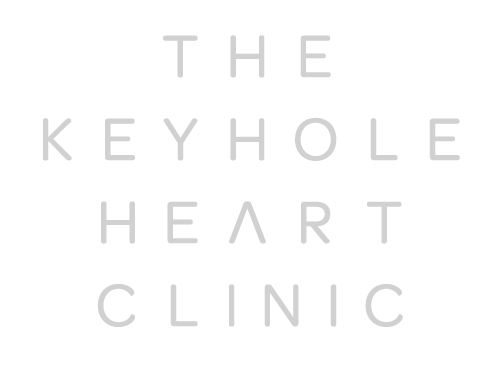Heart Disease FAQs: Understanding the Basics and Risk Factors

Heart disease is one of the leading causes of death worldwide, and it’s important for everyone, especially in the UK, to understand the basics, risk factors, and ways to prevent it. With more people becoming aware of the importance of heart health, here are some frequently asked questions (FAQs) about heart disease that could help you navigate through the topic.
1. What is heart disease?
Heart disease, also referred to as cardiovascular disease (CVD), encompasses a range of conditions that affect the heart and blood vessels. The most common type is coronary artery disease (CAD), which occurs when the blood vessels supplying oxygen and nutrients to the heart become narrowed or blocked. This can lead to heart attacks or angina (chest pain).
Other types of heart disease include heart failure, arrhythmias (irregular heartbeats), and congenital heart defects.
2. What are the symptoms of heart disease?
Heart disease symptoms can vary depending on the type and severity of the condition. Common symptoms include:
- Chest pain or discomfort (angina)
- Shortness of breath
- Dizziness or lightheadedness
- Irregular heartbeat (palpitations)
- Fatigue or weakness
- Swelling in the legs, ankles, or feet
If you experience any of these symptoms, it’s important to seek medical attention promptly, especially if they occur suddenly or are severe.
3. What are the risk factors for heart disease?
There are several factors that can increase your risk of developing heart disease. Some are controllable, while others are not:
Controllable risk factors:
- High blood pressure: Increases the strain on the heart and blood vessels.
- High cholesterol levels: Elevated cholesterol can lead to plaque buildup in the arteries, narrowing them.
- Smoking: Damages blood vessels and reduces the amount of oxygen in the blood.
- Physical inactivity: Lack of exercise can contribute to obesity, high blood pressure, and poor circulation.
- Unhealthy diet: Diets high in saturated fats, salt, and sugar can increase cholesterol levels and blood pressure.
- Excessive alcohol consumption: Heavy drinking can raise blood pressure and contribute to heart failure.
Uncontrollable risk factors:
- Age: The risk of heart disease increases with age.
- Family history: A family history of heart disease increases your risk.
- Gender: Men are generally at higher risk, though the risk for women increases after menopause.
- Ethnicity: Certain ethnic groups, including South Asian and African-Caribbean people, have a higher risk of heart disease.
4. Can heart disease be prevented?
Yes, in many cases, heart disease can be prevented by adopting a healthy lifestyle. Key steps to reduce your risk include:
- Eating a balanced diet: Focus on eating fruits, vegetables, whole grains, lean proteins, and healthy fats.
- Exercising regularly: Aim for at least 150 minutes of moderate exercise each week.
- Maintaining a healthy weight: Being overweight can increase your risk of heart disease.
- Quitting smoking: Giving up smoking can dramatically reduce your risk of heart disease.
Managing stress: Chronic stress can contribute to heart disease, so finding healthy ways to cope is important. - Monitoring your blood pressure and cholesterol levels: Regular check-ups help detect and control any issues early on.
5. What are the treatment options for heart disease?
Treatment for heart disease depends on the type and severity of the condition. Common treatment options include:
- Medications: These may include blood thinners, beta-blockers, statins, or ACE inhibitors to help manage blood pressure, cholesterol, and other aspects of heart health.
- Lifestyle changes: Diet, exercise, and quitting smoking are often recommended as part of treatment.
- Surgical procedures: In some cases, surgery may be necessary, such as coronary artery bypass grafting (CABG) or angioplasty to open blocked arteries.
- Cardiac rehabilitation: A programme of exercise, education, and counselling designed to help you recover and reduce the risk of future heart problems.
6. Is heart disease hereditary?
While heart disease can run in families, it’s important to note that lifestyle factors play a significant role. If your family has a history of heart disease, it’s essential to monitor your health and make lifestyle changes to reduce your risk. Even with a family history, a healthy diet, regular exercise, and not smoking can significantly lower your chances of developing heart disease.
7. What are some common misconceptions about heart disease?
- “Heart disease only affects older people.” While age is a risk factor, heart disease can affect people of all ages. Young adults can also experience heart problems, particularly if they have other risk factors like high blood pressure or diabetes.
- “Heart disease is only caused by poor lifestyle choices.” Although lifestyle plays a crucial role, genetics, age, and other factors can also contribute to heart disease.
- “If you don’t have symptoms, you don’t have heart disease.” Many people with heart disease have no symptoms, especially in the early stages. That’s why regular check-ups and screenings are important.
8. How can I get tested for heart disease?
If you are at risk for heart disease or experiencing symptoms, your GP may recommend tests to assess your heart health. Common tests include:
- Blood tests: To check cholesterol, blood sugar, and other markers.
- Electrocardiogram (ECG): To measure the electrical activity of the heart.
- Echocardiogram: An ultrasound scan to check for structural problems.
- Stress test: To monitor how your heart performs during physical activity.
9. What is the outlook for someone with heart disease?
The outlook for someone with heart disease depends on the type, severity, and how well it’s managed. With early diagnosis, treatment, and lifestyle changes, many people with heart disease can lead healthy, active lives. It’s essential to follow medical advice, take prescribed medications, and make changes to reduce risk factors.
Conclusion
Heart disease is a serious condition, but with the right knowledge, early intervention, and lifestyle changes, it is manageable and often preventable. By understanding the risk factors, recognising symptoms, and seeking treatment early, you can significantly reduce your chances of developing heart disease. Regular check-ups with your GP, especially if you have a family history of heart disease or other risk factors, are essential for maintaining a healthy heart.
Remember, heart health isn’t just about treating disease but about living a heart-healthy lifestyle every day.

